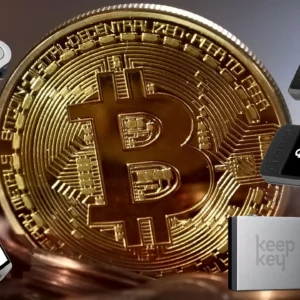Introduction
In recent years, the global financial landscape has been revolutionized by the emergence of cryptocurrencies, and none has been more prominent than Bitcoin. As the flagship digital currency, Bitcoin has captured the attention of governments, financial institutions, and retail investors alike.
However, when a figure as influential as Elon Musk, the CEO of Tesla and SpaceX, gets involved with Bitcoin, the impact reverberates across markets worldwide. The relationship between Elon Musk’s company, Tesla, and its Bitcoin portfolio has been one of the most discussed topics in the world of cryptocurrency.
This post aims to delve deeply into the Bitcoin portfolio of Elon Musk’s company, its role in Tesla’s financial strategy, the reasoning behind such a bold move, and what the future may hold.
By analyzing Tesla’s involvement with Bitcoin and exploring how the cryptocurrency fits within Elon Musk overall business philosophy, we can better understand the growing interplay between traditional companies and the digital asset world.

1. The Initial Foray into Bitcoin
Elon Musk’s company, Tesla, made waves in early 2021 when it announced a significant investment in Bitcoin. The news, disclosed in a filing with the U.S. Securities and Exchange Commission (SEC), stated that Tesla had purchased $1.5 billion worth of Bitcoin. This monumental move marked one of the first major corporate investments in Bitcoin and signaled that cryptocurrencies were entering the mainstream financial arena.
But why did Elon Musk and his company decide to make such a bold move? Part of the answer lies in the growing acceptance of Bitcoin as a store of value, often compared to digital gold. Musk, a visionary known for embracing innovative technologies, saw the potential for Bitcoin to serve as a hedge against inflation and currency devaluation. Furthermore, the decentralized nature of Bitcoin aligns with Elon Musk broader views on disruptive technologies that challenge traditional systems.
At this stage, the Bitcoin portfolio of Elon Musk’s company was not just an investment but also a step toward exploring Bitcoin’s potential use as a form of payment. In March 2021, Tesla briefly announced that it would begin accepting Bitcoin as payment for its electric vehicles. Although this option was later suspended due to environmental concerns surrounding Bitcoin mining, it underscored Tesla’s seriousness in incorporating cryptocurrency into its business model.
2. Bitcoin’s Impact on Tesla’s Financials
While the purchase of Bitcoin generated excitement and headlines, it also raised questions about the risks associated with such a volatile asset.Elon Musk Tesla’s Bitcoin portfolio was, and remains, subject to the inherent price fluctuations that characterize the cryptocurrency market. At the time of Tesla’s initial investment, Bitcoin was trading at approximately $30,000 per coin. By April 2021, Bitcoin’s price had surged past $60,000, doubling Tesla’s investment in a matter of months.
However, as quickly as Bitcoin’s price soared, it also began to experience corrections. By May 2021, the cryptocurrency market saw a significant dip, bringing Bitcoin’s price down to around $30,000 again. The volatility of Bitcoin became evident, and Tesla’s financial performance was directly influenced by the market’s ups and downs.
In its earnings reports, Tesla was required to account for its Bitcoin holdings under accounting rules for intangible assets. This meant that if Bitcoin’s value decreased, Tesla had to record an impairment loss on its balance sheet, even if it did not sell any of its holdings. Conversely, gains were only realized when the Bitcoin was sold. Thus, while the Bitcoin portfolio of Elon Musk’s company presented the potential for high rewards, it also introduced notable risks.
Musk has always been transparent about these risks, but he has also remained bullish on the long-term value of Bitcoin. He believes that Bitcoin will continue to gain mainstream acceptance and that its current volatility is part of the natural maturation process for any disruptive technology. Tesla’s involvement with Bitcoin is not just a short-term play but a long-term strategic decision designed to align the company with the future of digital currencies.
3. Tesla’s Environmental Concerns and Bitcoin Mining
One of the most significant issues Elon Musk and his company encountered with their Bitcoin portfolio is the environmental impact of Bitcoin mining. Bitcoin operates on a proof-of-work system, which requires vast amounts of computational power to validate transactions and secure the network. This process consumes enormous amounts of electricity, much of which comes from non-renewable sources.
In May 2021, Musk tweeted that Tesla would suspend Bitcoin payments due to concerns over the increasing use of fossil fuels for Bitcoin mining. He emphasized that while cryptocurrency had a promising future, it could not come at the expense of the environment. Musk’s comments led to a sharp drop in Bitcoin’s price, demonstrating the influence he holds over the cryptocurrency market.
However, this stance did not mean that Tesla was abandoning its Bitcoin portfolio altogether. Instead, Musk indicated that Tesla would be open to resuming Bitcoin transactions once there was evidence that a significant portion of Bitcoin mining was conducted using renewable energy sources. Additionally, Musk threw his support behind other cryptocurrencies like Dogecoin, which he viewed as having lower environmental impact due to its more energy-efficient transaction process.
The environmental controversy surrounding Bitcoin and Tesla highlighted a broader debate within the cryptocurrency community about the sustainability of digital currencies. Some mining operations have begun transitioning to renewable energy sources, and efforts are underway to create more eco-friendly consensus mechanisms, such as proof-of-stake. Musk has expressed optimism that these innovations will address the environmental concerns associated with Bitcoin, allowing it to realize its full potential without harming the planet.
4. Future Outlook: What’s Next for Tesla and Bitcoin?
As of today, the Bitcoin portfolio of Elon Musk’s company remains a key aspect of its financial strategy. While the company has navigated periods of volatility and environmental controversy, it continues to hold Bitcoin as a valuable asset. Moreover, Musk’s involvement in the cryptocurrency space has not been limited to Bitcoin. His frequent tweets about cryptocurrencies, especially Dogecoin, have shown his commitment to exploring the broader digital currency ecosystem.
Looking forward, Tesla’s relationship with Bitcoin may evolve in several ways. First, as the cryptocurrency market matures and more regulatory frameworks are put into place, we may see greater price stability in Bitcoin. This could mitigate some of the volatility Tesla has experienced with its Bitcoin holdings and provide a clearer picture of its financial performance.
Additionally, as more Bitcoin mining operations transition to renewable energy sources, Tesla may revisit its decision to suspend Bitcoin payments for its vehicles. If this happens, it would further integrate Bitcoin into Tesla’s business model and serve as an endorsement of Bitcoin’s viability as both a store of value and a means of payment.
Lastly, it’s worth considering the broader influence of Elon Musk on the cryptocurrency space. His involvement with Bitcoin, Dogecoin, and other digital assets has spurred increased public interest in cryptocurrencies, and his ability to shape market trends cannot be underestimated. Whether through direct investments, public statements, or innovative applications, Musk’s influence will continue to play a critical role in the development of the cryptocurrency market.
Conclusion
The Bitcoin portfolio of Elon Musk’s company, Tesla, represents a bold and forward-thinking approach to corporate finance. By embracing Bitcoin, Musk has once again demonstrated his willingness to challenge the status quo and explore new frontiers in technology and finance. While Tesla’s journey with Bitcoin has been marked by volatility and environmental concerns, its long-term commitment to cryptocurrency is evident.
As the market evolves and Bitcoin becomes more widely accepted, Tesla’s involvement could pave the way for other major corporations to incorporate digital assets into their financial strategies. The future of Bitcoin and its role in the business world is still unfolding, and Elon Musk’s company is at the forefront of this exciting transformation.
What do you think about Tesla’s involvement with Bitcoin? Do you believe other companies will follow suit? We’d love to hear your thoughts in the comments section below!






